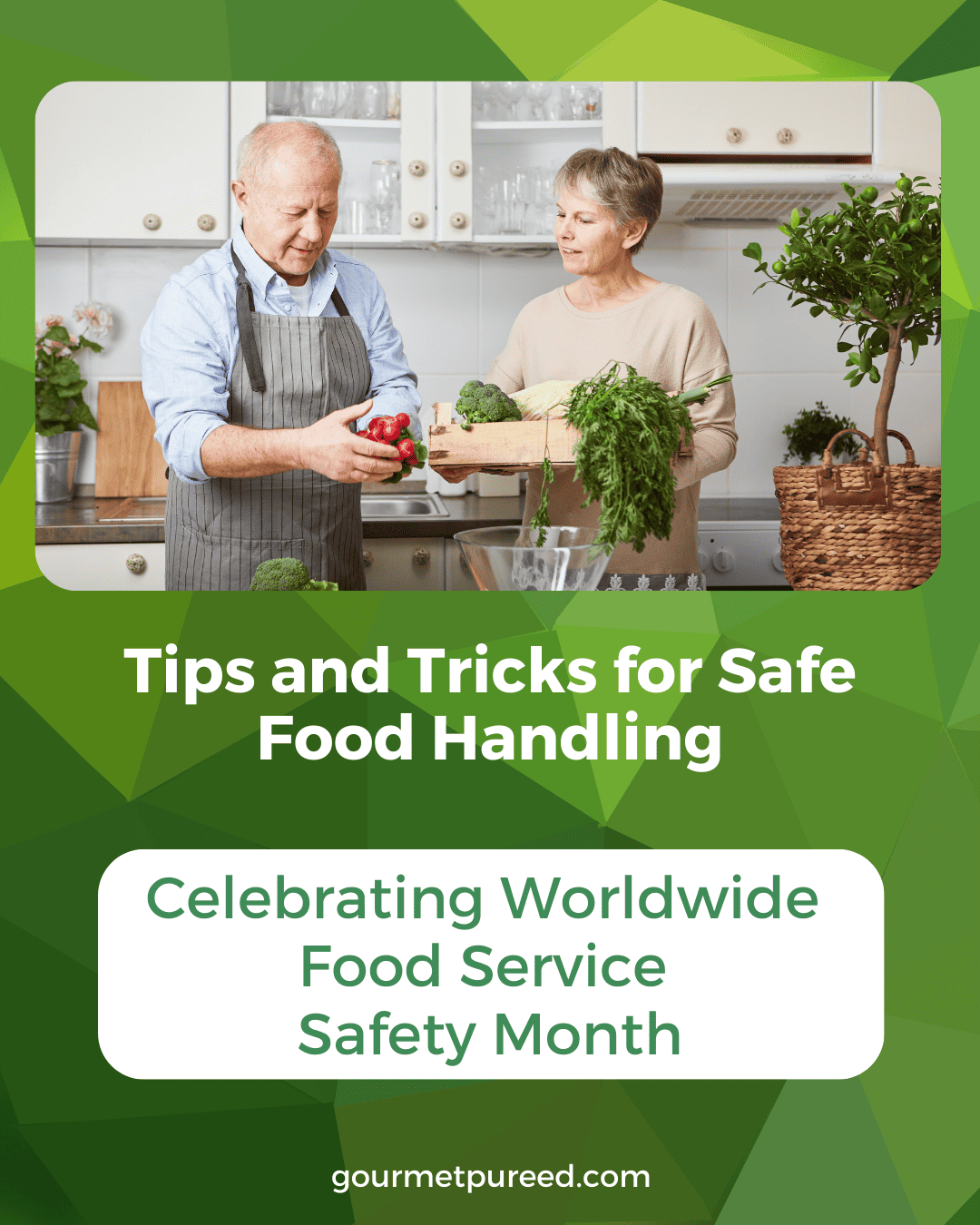Worldwide Food Service Safety Month is a worldwide annual event celebrated in December. The month-long celebration aims to educate and promote food safety to the public, emphasizing the importance of safe food handling. Foodborne illnesses continue to be a global problem, and it is everyone’s responsibility to prevent the spread of these illnesses. In this blog, we’ll discuss some food safety tips and tricks you can practice in your kitchen or restaurant to ensure a safe and enjoyable dining experience.
- Proper Hand Washing: One of the most critical aspects of food service safety is proper hand washing. Hands should be washed frequently and properly with soap and running water before and after handling food, using the restroom, or handling any other item that could contaminate food. It is also advisable to keep all cuts, burns, and sores covered and away from food. If you notice any symptoms of illness, please stay away from food preparation and service.
- Safe Food Storage: Another essential aspect of food service safety is properly storing and handling food to prevent foodborne illnesses. Hot foods should be stored above 60°C, while cold foods should be stored below 5°C. Cross-contamination should also be avoided by storing cooked food away from raw food. Finally, ensure that perishable foods are consumed within their shelf life, and spoiled food should be discarded appropriately.
- Proper Cooking Temperatures: Safe food preparation revolves around proper cooking temperatures. Always ensure that food is cooked to the right temperature, using a food thermometer to measure that each cut of meat or poultry is cooked to the proper temperature. Ground beef, for example, should be cooked to an internal temperature of 71°C, while poultry like chicken should be cooked to an internal temperature of 74°C.
- Clean and Sanitize Food Service Equipment: Keeping your food service equipment clean and sanitary is another essential aspect of food handling safety. All the surfaces and equipment used in food preparation and cooking should be cleaned regularly using approved sanitizing solutions that destroy bacteria and viruses. Dishwashers should also be regularly cleaned and sanitized to reduce the risk of transmission of foodborne illnesses.
- Training and Education: Finally, proper training and education for food handlers are essential to ensure food service safety. All food handlers should undergo relevant training and education on proper food handling techniques, good hygiene practices, and proper cleaning and sanitizing procedures. Ongoing training and education are also crucial, as new developments may arise that could affect food safety.
Celebrating Worldwide Food Service Safety Month is a necessary event that raises awareness and empowers people to take measures to reduce the chances of foodborne illnesses. Safe food handling starts with each one of us, and we should strive to implement best practices in our restaurants, kitchens, and homes. By observing proper handwashing, safe food storage, proper cooking temperatures, clean and sanitized equipment, and ongoing training and education, we can create safer food environments that promote healthy living.




